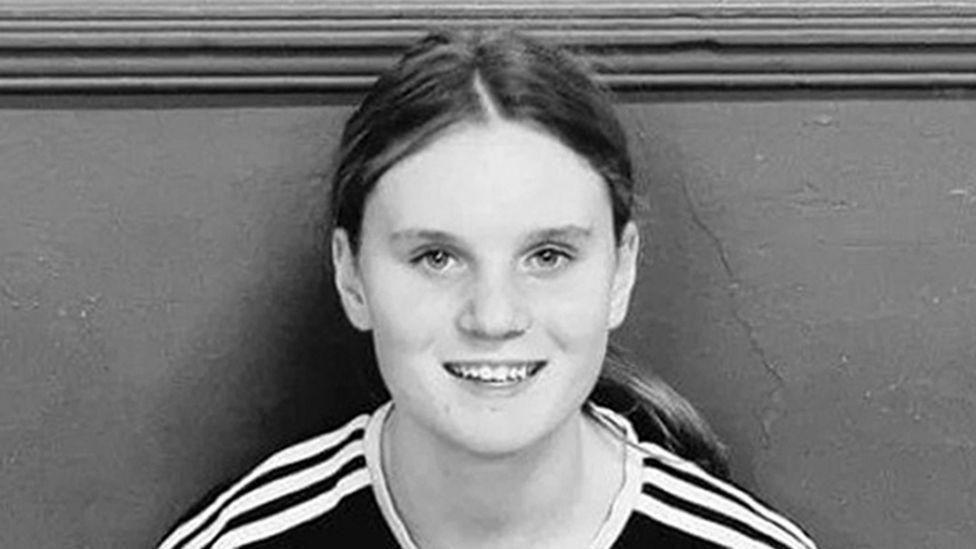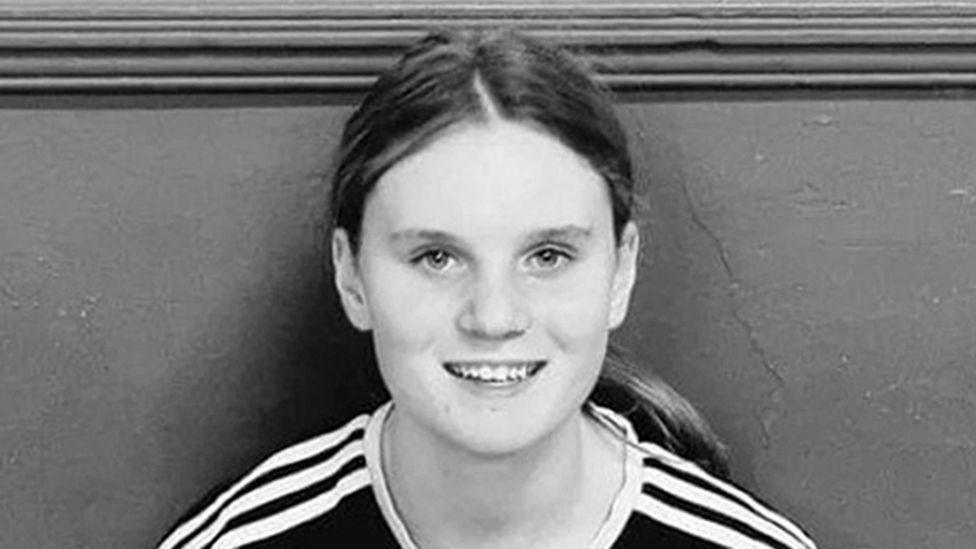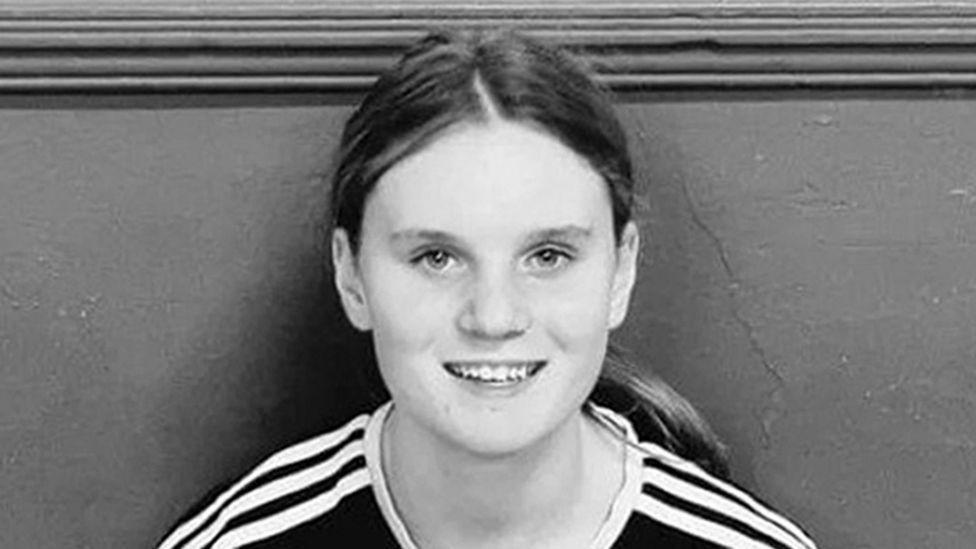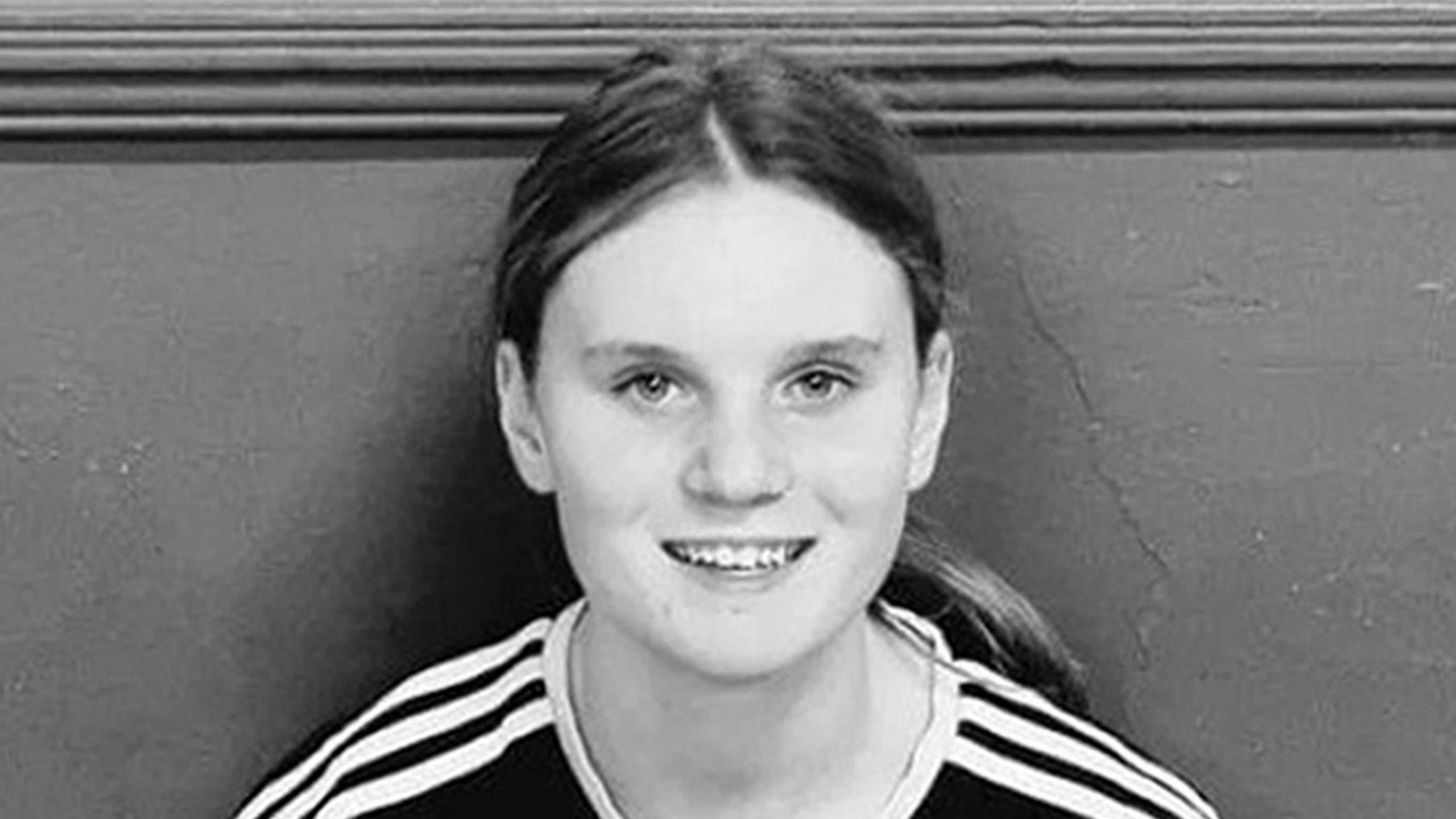Girl's killer 'perfectly capable of lying'

Holly Newton was stabbed in an alleyway in Hexham last year
- Published
A court has heard a teenage boy accused of murdering a 15-year-old girl was perfectly capable of lying, despite his difficulties.
Holly Newton was knifed multiple times in an alleyway in Hexham, Northumberland, on 27 January last year.
Prosecution barrister David Brooke KC made the comments in his closing speech during the trial at Newcastle Crown Court, which has lasted five weeks.
The defendant, who was 16 at the time, admits manslaughter but denies murder, having told the court he "went blank" during the attack.
The court previously heard the boy, who has been diagnosed with autism, had been following Holly for 45 minutes the afternoon she died, but he said he had been carrying a knife to harm himself and did not plan to hurt Holly.
But Mr Brooke told the court the attack by the boy, who is now 17, "was almost by definition a deliberate intentional attack" with "multiple blows" on Holly’s back, head and face.
He also told the jury the defendant had continued to stab Holly after he stabbed another boy who tried to pull him away from her.
Mr Brooke said: "He’s very lucky he's not facing a double murder charge, 1cm (0.4in) either way and [the other boy] could have died."
'This was murder'
The knife snapped during the attack and the barrister asked the jury to think about the "force required to bend and then break a knife", adding "it doesn't take much, does it, to understand the ferocity".
Mr Brooke told the court he did not think it was true the defendant's mind had "gone blank", as he had described events leading up to the stabbing to police.
He said: "Think of the sheer implausibility that the only thing he doesn't remember is the attack itself."
The court was also told the psychiatrist who had assessed the teenager had not found any evidence of Post-Traumatic Stress Disorder (PTSD), which could have led to dissociation or a "black out".
In conclusion, Mr Brooke told jurors: "When you stand back and look at all the evidence leading up to what happened in that alleyway, and all the surrounding circumstances, you can be sure this was murder and the only correct verdict is guilty."
'Out of control'
Defence barrister Nigel Edwards KC told the court in his closing speech that the teenager had gone to Hexham with the intention of hurting himself, not Holly.
He said: "He's had that knife in his possession over a period of time, the idea was to hurt himself, perhaps kill himself.
"This is something that this young man has done for most of his life in response to stuff that has happened to him."
Mr Edwards also told the court the defendant was "out of control" the moment the attack happened and "a switch had flicked" while he was having "bad thoughts in his head".
The jury was also reminded that the passer-by, James Westlake, who stopped the attack, was asked to describe the defendant as he restrained him, and said: "He was quiet, just very blank."
Mr Westlake said the defendant later became emotional and said to him: "Oh god, what have I done?"
In conclusion, Mr Edwards told the jury he was not trying to pin events on a particular medical condition, but said "it's about a young man with autistic difficulty, with learning difficulties, who has gone through trauma.
"Has this played into that?"
The defendant also denies wounding another youth who was injured while trying to save Holly.
The trial continues.
Follow BBC North East on X (formerly Twitter), external, Facebook, external and Instagram, external. Send your story ideas to northeastandcumbria@bbc.co.uk
Related topics
- Published21 August 2024

- Published20 August 2024

- Published9 August 2024
